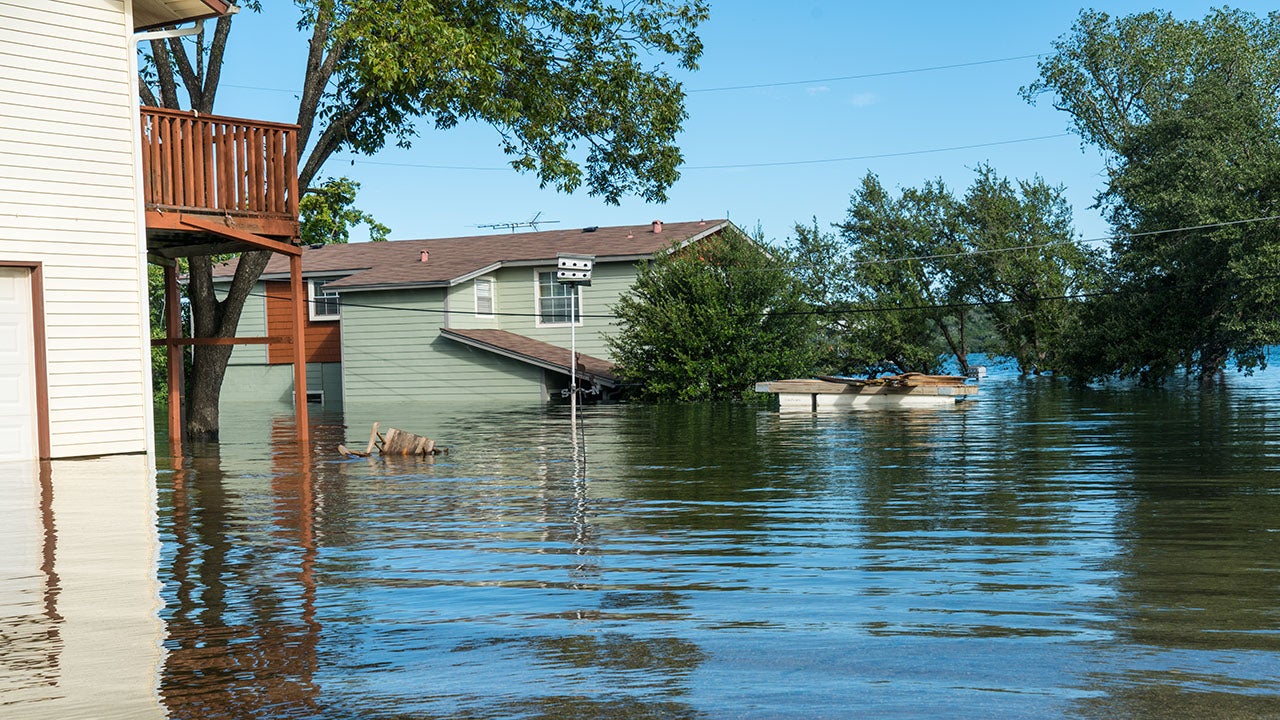Does your homeowners insurance go up after a claim?

Key takeaways
- Your homeowners insurance premium may increase after a successful claim.
- The severity of the claim can impact the amount of the increase.
- Looking for discounts and shopping around are two ways to keep your rate reasonable.
You’ve probably heard that your insurance can go up if you file a claim, but how much damage is “worth it” to file a home insurance claim? The answer depends on your budget, claim type and claims history. While your home insurance rate can go up after a claim, home insurance is designed to pay for covered damage, so sometimes the increase is worth it, but if you live in an area where it’s difficult to secure coverage, you may want to carefully consider a potential claim before you file one.
How much does your homeowners insurance increase after a claim?
How much home insurance goes up after a claim will depend on a few things. The severity of the claim is one of the most important. In general, the more expensive your claim is, the more your insurance company could raise your premium.
Different carriers adjust rates differently depending on the nature and severity of the claim, so it’s tough to say how different claim types affect rates.
Regardless, not all home insurance claims are weighed equally. How much — or even, if at all — your home insurance goes up after a claim will depend on:
- Your personal claims history: Homeowners with extensive claims histories may be seen as high-risk and be charged higher rates.
- Claim size: A $30,000 claim will likely affect your rate more than a $5,000 one.
- Type of claim: Different types of claims signal different kinds of risk. Carriers often raise rates more for claims that are due to homeowner negligence or claims that are commonly recurring, like vandalism.
- Your state: Some states regulate how filing a claim can affect your insurance policy. Remember, home insurance is managed by state (not federal) governments.
- Your insurance company: Different insurers each have their own ways of calculating your rate. To one insurer, a certain kind of claim may not be that big of a deal. But, to another, it could raise your premium significantly.
- Your policy specifics: Some home insurance policies offer add-ons like claim forgiveness or a rate lock, which can keep your premium level after you file a claim.
Sometimes, your home insurance premium could go up not because you filed a claim, but because many people in your area did. For example, if multiple homeowners on your street file claims for home break-ins, that could signal to an insurance company that your street is a high-risk location.
Claim type vs. average rate increase
The average cost of home insurance for a homeowner without any claims is $2,424 for a policy with a $300,000 dwelling limit as of November 2025. The table below illustrates how the cost of home insurance after a claim can increase, based on our analysis of average rates from Quadrant Information Services.
| Type of claim | Dollar amount of claim paid out* | Average annual rate after a claim* | Percent increase |
|---|---|---|---|
| Wind | $12,000 | $2,548 | 5% |
| Liability | $31,000 | $2,556 | 5% |
| Theft | $5,000 | $2,574 | 6% |
| Fire | $80,000 | $2,561 | 6% |
*Average rates based on a claim filed on a home insurance policy with $300,000 in dwelling coverage.
Why do insurance premiums go up after filing a claim?
With home insurance, the past is often used to determine the future. Meaning, if you’ve filed a claim before, your insurance company could see you as more likely to do so again. Some claims cost insurance companies quite a bit of money; to account for the risk of this loss occurring again, an insurance company may charge you a higher rate.
Whether or not your insurance premium increases after a claim is situational. Certain types of claims affect insurance rates more than others. You should expect your homeowners insurance to go up after a claim if you fall into any of the following categories:
- You live in an area with severe weather
- Your home is located in a high-crime area
- You have filed home insurance claims in the past
- You own a home with a history of claims
Learn more: Factors that impact the cost of homeowners insurance
How long does a claim affect home insurance rates?
Unlike the ghost living in your spooky attic, a claim won’t haunt you forever. How long a homeowners insurance claim stays on your record can vary, but is usually no longer than seven years. After that time, your rate should begin to level out. To check if a claim is lingering on your record, you can request a Comprehensive Loss Underwriting Exchange (CLUE) report. A CLUE report will detail previous claims filed for a particular property and is used by many insurance companies when setting rates. If there’s an error on your home’s CLUE report, it could be making your policy more expensive, so it could pay to check yours out.
Note that even if you haven’t filed a claim in a long time (or ever) your rates may continue to climb if your home is in a high risk area — like one with a lot of severe weather, theft or vandalism.
Are there times when companies are not allowed to increase rates after a claim?
There are certain situations when an insurance company may not be allowed to raise your rate after filing a claim. Because insurers are regulated at the state level, consumer protection laws vary based on your location. For example, in Texas, your home insurer cannot raise your rate for a filed claim that is not covered and paid out.
As a homeowner, it is important to understand the consumer protection laws in your state. You can contact your state’s Department of Insurance (or equivalent governing body) to learn more about the restrictions where you live. You can also contact your insurance company to find out what situations are exempt from rate changes.
When is it worth it to file a home insurance claim?
Just because your premium could go up doesn’t mean you should never file a claim. It’s more a matter of knowing when it’s financially in your best interest to do so. It could take a while for your home insurance premium to get back to its pre-claim level, so you may be shouldering a surcharge for a while. If you’re not sure whether or not you should file a claim, you might want to ask yourself the following:
- Is the damage I’m claiming higher than my deductible? Your deductible is the amount of money you are financially responsible for after a covered loss. If your home repair costs are lower or close to your policy deductible, it may not be worth it to file a claim and face a premium surcharge.
- Can I afford the repairs without insurance? Of course, for major repairs, you’ll probably want to rely on your policy instead of dipping into your own pockets. But, for smaller things, like a few broken windows, you may consider paying out of pocket.
- Does what I’m claiming have long-term benefits or ramifications? Something like a full roof replacement or brand-new kitchen could help you sell your home later on, so filing a claim might make sense as the long-term benefit could offset the cost eventually.
Smaller issues, like a broken window or a few missing shingles, might have repair costs below your deductible and can be handled out-of-pocket. But major losses, like a fire or a roof collapse, can easily cost tens of thousands of dollars to repair. If that kind of expense would strain your finances, filing a claim makes sense.— Shannon Martin, Bankrate insurance expert
Frequently asked questions
Methodology
Bankrate utilizes Quadrant Information Services to analyze November 2025 rates for all ZIP codes and carriers in all 50 states and Washington, D.C. Quoted rates for our base profile are based on married male and female homeowners with a clean claim history, good credit and the following coverage limits:
- Coverage A, Dwelling: $300,000
- Coverage B, Other Structures: $30,000
- Coverage C, Personal Property: $150,000
- Coverage D, Loss of Use: $60,000
- Coverage E, Liability: $500,000
- Coverage F, Medical Payments: $1,000
The homeowners also have a $1,000 deductible, a $500 hail deductible and a 2 percent hurricane deductible (or the next closest deductible amounts that are available) where separate deductibles apply.
These are sample rates and should be used for comparative purposes only. Your quotes will differ.
If otherwise specified, the base profile has been modified with the following homeowner characteristics:
Why we ask for feedback Your feedback helps us improve our content and services. It takes less than a minute to complete.
Your responses are anonymous and will only be used for improving our website.
You may also like

Does homeowners insurance cover flooding?

Does homeowners insurance cover termites?

Does homeowners insurance cover renovations?

Does homeowners insurance cover roof leaks?


